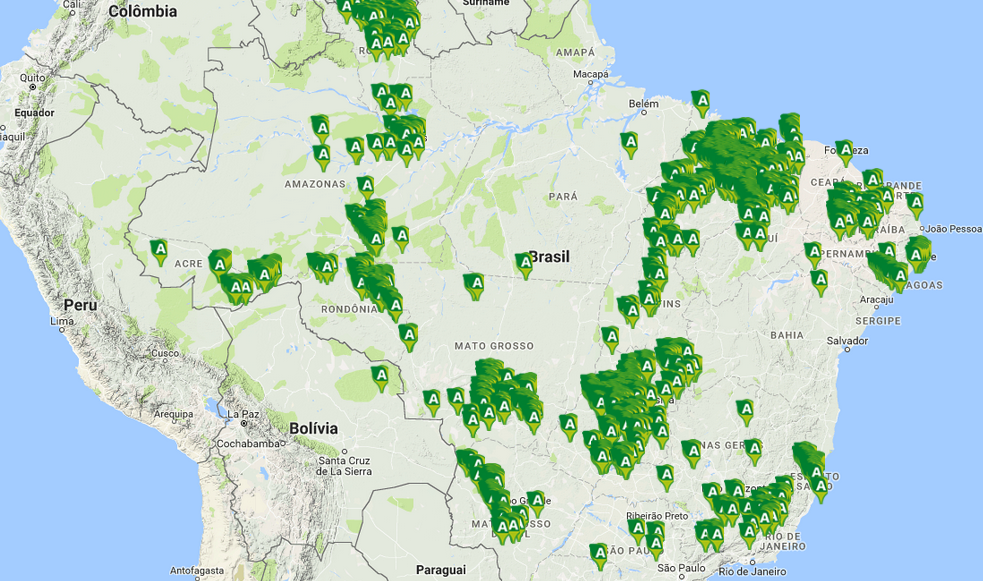Alelo Portal strengthens national and international institutions' databases
Alelo Portal strengthens national and international institutions' databases
Information about genetic materials stored in research institutions' gene banks is becoming increasingly detailed and precise, whether with regard to the taxonomic classification or to the place of origin or other attributes. And better still: such data can be shared with national and international organizations. Today, from his or her office in Uruguay, a researcher can “browse” through the rice collections of Embrapa Rice and Beans' Active Germplasm Bank, taking a virtual stroll through all the locations where a given crop accession is found in Brazil, by resorting to the wealth of resources within the Alelo Portal (system that stores data from animal, microbial and plant materials, which is maintained by decentralized curators and teams).
Such easiness has now reached another institution. With the aim of facilitating the exchange of data and information generated by activities in microorganism and plant genetic resources, Embrapa Genetic Resources and Biotechnology has just signed a membership and responsibility agreement with the Rio de Janeiro State Agricultural Research Corporation (Pesagro/RJ). With the agreement, both parties pledge to exchange confidential and non-confidential information uploaded, downloaded and shared through the Alelo Portal.
The partnership with Pesagro-RJ is not the first one, as other national institutions already work with the Embrapa unit and use the Alelo Portal. Teams of curators from Uruguay's National Agricultural Research Institute (INIA) and the Paraguayan Institute of Agrarian Technology (IPTA) have also signed the same agreement, which, in practice, allows them to perform a range of activities and duties. In order to work with Embrapa's teams, the curators in partner organizations participate in a training on Alelo's reference modules: passport, observation, conservation, and studies for system data validation.
According to the researcher from Embrapa Genetic Resources and Biotechnology Ivo Sias Costa, after the training, participants can share the event information in their institutions and evaluate an association with the Alelo Portal. He reports that the move to encourage State Agricultural Research Organizations “to use Alelo more and thus organize their collections has reached excellent results. “The State Agricultural Research Foundation (Fepagro-RS) has also already joined the membership and responsibility agreement, and is now associated to Alelo”, Costa comments.
Other positive results were recorded from actions with other Embrapa units has. In early June there was training event for Embrapa Western Amazon's team (Manaus, AM). Reseachers and curators from Embrapa Temperate Agriculture (Pelotas-RS) are also going to participate in a similar event. According to Ivo Sias Costa, the Ministry of Agriculture, Livestock and Food Supply (MAPA) has been supporting the actions that encourage institutions to adopt Alelo as system to organize their databases or to improve existing information.
Translation: Mariana Medeiros
Deva Rodrigues (MTB/RS 5297)
Embrapa Genetic Resources and Biotechnology
Press inquiries
cenargen.nco@embrapa.br
Phone number: +55 61 3448-3266
Further information on the topic
Citizen Attention Service (SAC)
www.embrapa.br/contact-us/sac/

